Female soldiers give views on close combat question
- Published
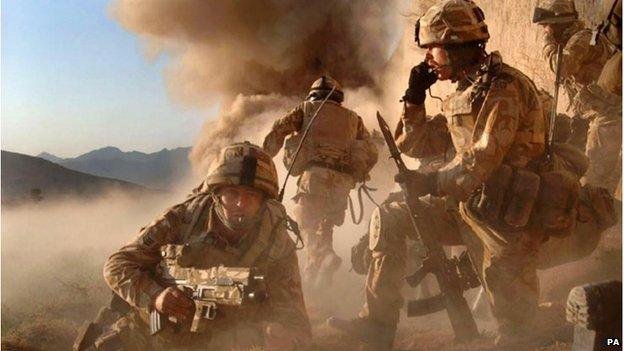
The government is considering whether women should join men in frontline fighting
Should women fight alongside men in frontline combat?
Unlike armed forces in many other countries including the US, the British Army does not currently allow it.
But a review to consider changing this has been brought forward from 2018 to this year - and the defence secretary says he wants to send a signal that the military is open to "all" who meet its standards.
Here female soldiers give their views on the issue.

Naomi Borrows, who served in the Army Air Corps and the Military Provost Guard Service while in the Army from 1997-2007, said she was "bewildered" by the "fuss" over women taking combat roles, though she said they should serve in other Army units first.
Newsnight's Kirsty Wark is joined by two former high-ranking female officers to debate the role of women in the British Army
"It's pretty much down to a woman that we are not speaking Latin today," she said, referring to Boudicca, queen of the Iceni people of eastern England, who led a major uprising against Roman forces almost 2,000 years ago.
Miss Borrows said she saw no reason why women should not serve in close-combat roles if they were "physically capable".
As ground crew in the Army Air Corps, she said her role could have required her to go "beyond the frontline" to refuel helicopters.
She said there was "no doubt" most women were not as strong as men, but there were some "scary, terrifying women" in the Army capable of frontline combat roles.
The Army was "chauvinistic" and was a hard place for women to thrive, she said, adding: "You've got to work twice as hard to be considered half as good."
But she said when work needed to be done "I would forget that they were men and they would forget that I was a woman".

Holly Mellors, a communications specialist currently in the Army, does not think women should fight in close combat.
"I don't know why they have brought this forward," she said.
"It will cost the government lots of money in accommodation because men have to be separate to women.
"I'm a fit female, but to carry 40kg (six stone) in an infantry role is quite hard.
"Women think they can carry it, they think they are stronger than they actually are, but if they were on a tour the men would probably end up having to pick up the slack and carry their stuff.
"It is not fair and makes the section weaker."
She added: "I've been in the Army for six years and in that time I've met about six to 10 girls, out of hundreds, that could hack it in the infantry."

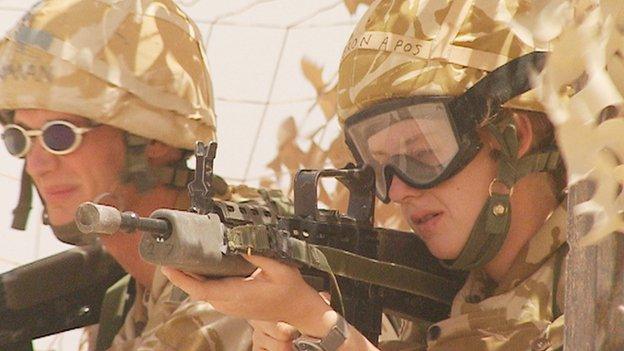
Women serve in many frontline roles in the British Army already
Brigadier Nicky Moffat, the highest-ranking woman in the Army until her retirement in 2012, said women should be allowed to take close-combat roles if they met the required standards.
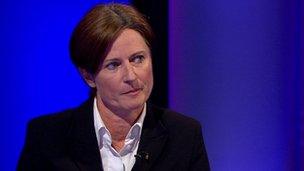
She said many women were "serving on the frontline already" as engineers, attack helicopter pilots, bomb disposal officers and in other roles.
She said only a "limited number" of women would want to join the infantry and armoured units.
"I'm also pretty sure that there will not be that many women who will meet the necessary physically demanding standards," she said.
"Those standards, of course, mustn't be lowered.
"Women and men should be judged on the same standards and those that pass - whether male or female - in my view should have the opportunity to serve their country in those roles."

Major Judith Webb, who retired from the Army in 1986, said women should not be allowed to serve in combat infantry units.
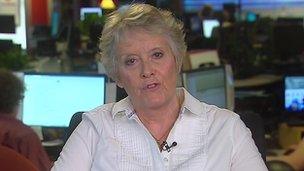
She said women were "different physiologically", adding: "It's not an argument that we have got to protect our women folk.
"What we don't want is to reduce the standards of effectiveness by reducing the fitness standards across the board.
"If you are going to have women in direct combat they have got to meet the same physical standards."
Major Webb said the "occasional woman" might do that, but warned that would lead to calls for more women to follow - resulting in standards being lowered to promote equality.
She said the lack of any impetus to get women playing in men's rugby teams demonstrated why women should not be sent into close combat.
But she called for more women to be appointed to senior army roles.

Rosalynd Saxton, who served in Kosovo, Bosnia and Iraq with the Adjutant General's Corps (Staff and Personnel Support Branch), said women should have the option of serving in close combat roles.
Women already serve on the "front line", she said, for example in providing medical care and carrying out bomb disposals.
Miss Saxton said fears that women would not be physically strong enough for combat roles were being overplayed by the media, saying many would have already passed the relevant fitness tests.
"A lot of females are already as fit as the men and many are fitter," she said.
She added: "I also think there is an issue with the serving men in the front line roles, in that it will be them that have a problem serving with a female on equal terms as it may be them that make the female a liability and not the female herself."
- Published8 May 2014

- Published8 May 2014
- Published5 May 2014
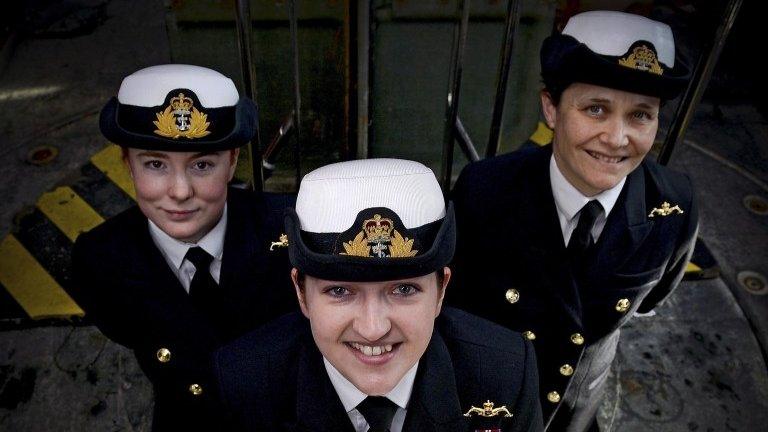
- Published6 April 2014
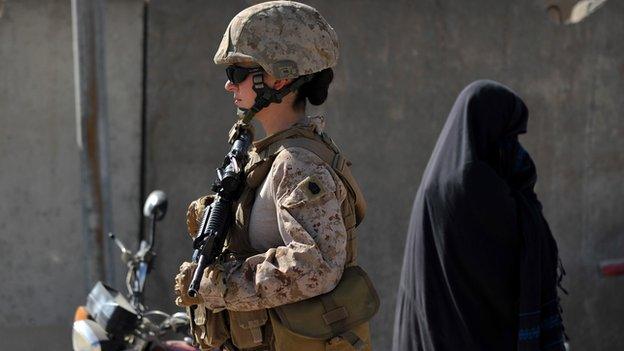
- Published29 November 2010